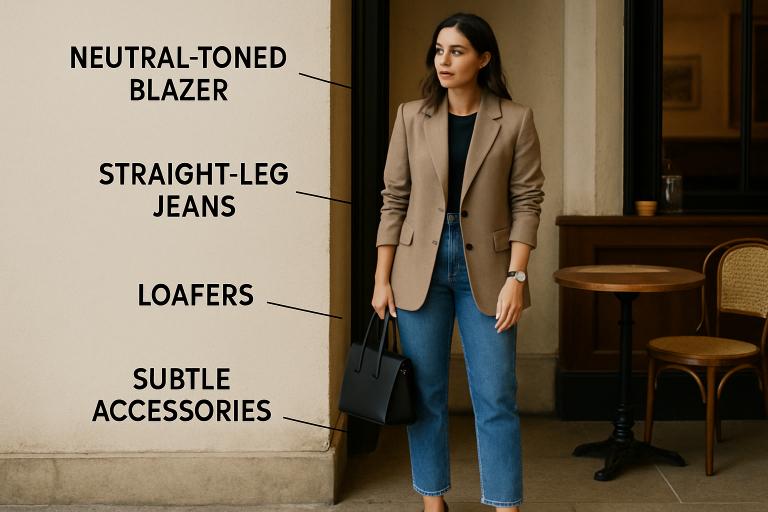In my experience having debt feels trapping and it puts you in a financial place of fear and lack. None of this is helpful in changing the way you feel about money and being a match for attracting abundance.
Today I have 10 tips to help you get out of debt and stay out of debt plus I’ve got a FREE ebook for you “Your Debt-Free Living guide”
10 Tips for getting out of debt and staying out of debt
Some of these tips will be more relevant to you than others but I recommend that you give all of them a try especially the top 3.
1. Create an Emergency Fund
By far this was the best thing I did to help me get out of debt. I was in debt with absolutely no backup. Therefore, every single time that any financial emergency happened, such as a car repair I hadn’t planned for, I’d go into a real panic mode. I felt frightened and I felt as if I had no control at all. It was a horrible feeling.
As a law of attraction practitioner, I know that the way we feel really matters. The way we feel creates a vibration and that vibration dictates what we attract into our life. Feelings of fear, lack, panic, overwhelm… all help us to attract more and more money worries, more debt, more unexpected expenses. The emergency fund was the biggest factor in changing how I felt about money and my ability to get out of debt and stay out of debt.
The emergency fund gave me breathing space. When an unexpected emergency came up, I was able to see it for what it was from a calm and logical place. Also, once I had this mindset shift, I saw a big decrease in these kinds of financial emergencies.
What I did: I started off by setting up an automatic transfer for £5 a week to a special savings account titled EMERGENCY FUND. Eventually, I was able to increase the amount and it soon started to build up. I built it up quite quickly to my goal amount of £1000. My next goal is to continue building to have 3 months living expenses in the emergency fund.
2. Create a budget (a workable one)
Everyone says to create a budget but not all budgets are equal. There are budgets that have every single penny going somewhere. I tried this and it stressed me out beyond belief, mostly because I’m self-employed and my income is not fixed each month. There are really complicated budgets that I found super hard to follow.
I simply have a dedicated notebook and write down the following.
- Everything that automatically comes out of my bank with the total amount.
- All other expenses for that month
- I pay myself a set amount each week that is for non-budgeted things like having a drink in a cafe, going out for the day, treats. This has been a big win for me. It makes the budget work in real life (more about this later)
I work out how much my expected expenses are and my expected earnings. As I said my income is not fixed but I do know roughly what I expect to earn. Anything over that is not taken into account is put to paying off debt (once debt free to savings).
3. Have a one-off payments account
This is a must for everyone in my opinion. We all have those one-off yearly payments such as car MOT/servicing, Various insurances, Dog health check/vaccinations, and we need to budget for these well in advance.
Write down everything you can think of that is a yearly one-off payment. If you’re anything like me, you will miss some things the first year of doing this. That’s okay, at least you’re a lot more prepared than you were before. I add mine up and then add another couple of hundred to the amount I expect. This gives me a little bit extra in case I have missed something or for price increases.
You will always have money set aside for all payments as you go through the year without having to pay on the credit cards because you don’t have enough funds available.
4. Plan ahead for Christmas and Birthdays.
These things come around every single year, yet Christmas, in particular, is the thing that puts so many people deeper in debt. Having a Christmas and Birthday fund throughout the year means you’ll have the money ready when you need it.
I do a couple of little side hustles in my spare time throughout the year that help me build a nice Christmas fund.
I also have a savings fund dedicated to Christmas and Birthdays – Money automatically goes into this account monthly.
Simply write down the people you buy for and the approximate amount you spend (write the max amount to save and try to spend less where you can with smart shopping).
5. Allow yourself some spending money
Getting out of debt isn’t likely to be something that happens in just a couple of weeks or even a couple of months, so for me, not having a single penny that wasn’t accounted for didn’t work. I’d go over budget and then everything would fall apart. I’d go into the mindset of I can’t do this.
Every week I automatically pay myself free spending money. I can use this on absolutely anything. I use it to have days out, buy myself a nice drink in the cafe, buy myself clothes or use if for something extra my son needs. It’s for anything that is not in my set budget.
This weekly amount is one of my Automatic Payment amounts, so it is budgeted for.
6. Miscellaneous buffer money
I factor in buffer money every month. We all have unexpected things that come up in life, for example, my son needed some equipment for college this week. It’s not in my budget, it’s not an emergency and it’s not a yearly one-off payment. Having my buffer money really helps with this kind of thing. Without it, I would end up buying on my credit card.
7. Make friends with your bank account
I used to avoid looking at my bank account and when I did it was that fear thinking overwhelming me. With all the special accounts set up, I want you to check your accounts regularly. You should see your emergency fund etc, growing nicely month by month. Also, check off as each monthly payment is made.
At the start of the month, I know how much is going to come out of my bank automatically, and I know exactly how much I need in the bank after each payment is made.
Any money that isn’t paid from the bank is put into cash envelopes (see next point)
8. Use cash envelopes
For things that are not paid out of the bank, I use cash envelopes. For example, I pay the dog groomer in cash, my hairdresser… Every month I put a set amount into the cash envelope for that purpose.
Some months I don’t have my haircut but I still pay in the same amount to my HAIRCUTS cash envelope so that I have extra for when I want to get my hair coloured etc.
When Indies doesn’t go to the groomers one month, the money builds up to cover vet expenses.
9. Do a reality check
You’re going to have to get hard on yourself with this one and it’s tough going, but it’s essential for you to get out of debt. Where is your money going?
Now, this is a two-part reality check.
- Find out if you’re wasting your money by paying too much. I contacted every supplier and got my bills reduced. I question and shop around always for the best insurance, energy deals. It takes time but it’s so worth it.
- What are your spending triggers? I used to think I was super frugal. I don’t go out drinking, I don’t spend excessively on myself at all, so where was the money going? It was going on my son mostly and I was saying yes to family things that I couldn’t afford. I’d love to say I’ve completely got a grip on this one but the truth is, I think it’s going to be an ongoing thing I have to work on. But knowing the triggers helps to at least improve the situation so that you make a more conscious decision.
10. Speak to people and let them know what’s going on
I tried to hide how badly I was in debt for a long time and this caused more problems for me. If people don’t know you have money problems they don’t understand that every time they ask you to do something that costs money, you have a real struggle. You either say yes and put yourself into more of a financial mess ( I did this) or you struggle to say no.
Speak to the people closest to you and explain your situation. Tell them you would like them to support you in getting debt-free. As them not to ask you to do things that cost money. Explain to your kids that you want them to help you to pay off this debt as quickly as possible. For me that meant asking my son not to ask to go out for meals, not to ask for sweets etc. I encouraged him to make an ongoing list of things he wants. He was still at school at the time and didn’t have his own money other than what I gave him. I asked him not to tell me about things he wanted unless it was something for school and instead write it in the book. This was great as then I didn’t have that feeling of wanting to get him whatever it was and often he would end up not really wanting the thing anyway.
Those are my top ten tips for getting out of debt and staying out of debt.
More tips and lots of money saving ideas
I hope you’ve found these tips really useful. For even more tips and lots of money saving ideas, grab my free Debt-Free Living Download.
Share your own money saving tips and tips to get out of debt and stay out of debt in the comments.




